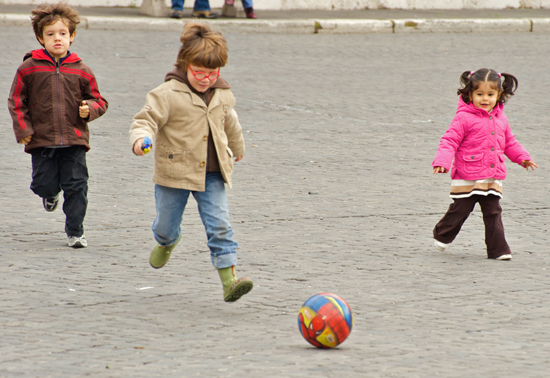Life Stages: Childhood
Completing the Family
Italian children are indulged when they are small, but they are expected to show increasing amounts of loyalty to their family and obedience to their elders as they grow. They are also expected to perform their share of the household chores and help with household activities.
Some Italians continue to live with their parents after marriage, thereby allowing grandparents to play an important role in raising their grandchildren. Mothers, however, are usually the child’s primary caregiver. Both public and private preschool programs enroll children between the ages of three and five years. These centers play a major role in childcare, particularly in areas with a large proportion of working mothers, like Northern Italy.
Children are given an important place in Italy’s social structure. They are central to any household, and most Italians consider a family to be "complete" only after the birth of a baby. Since Italians get married to have children, an Italian child can usually look forward to an ideal family life. They are given timely direction, placed under constant surveillance by the family, and often physically punished when deemed necessary. They are included in social events and often taken on outings by their parents. Italy has a low rate of child abuse.
School and Work
Education is free in Italy, and children are expected to attend formal schooling from the ages of 7 to 18. Informal schooling starts with preschool programs and elementary education, which is compulsory and lasts for at least eight years.
Italian law prohibits the employment of children below the age of 15 and restricts the employment of boys under 18 and girls under 21. Child labor, however, is present in society, and an estimated 150,000 children between the ages of 7 and 14 are employed. The practice is more prevalent in economically prosperous regions. The majority of working children are involved in family businesses, while the rest work in hotels, coffee bars, restaurants, and the agricultural sector.
Copyright © 1993—2024 World Trade Press. All rights reserved.

 Italy
Italy 
